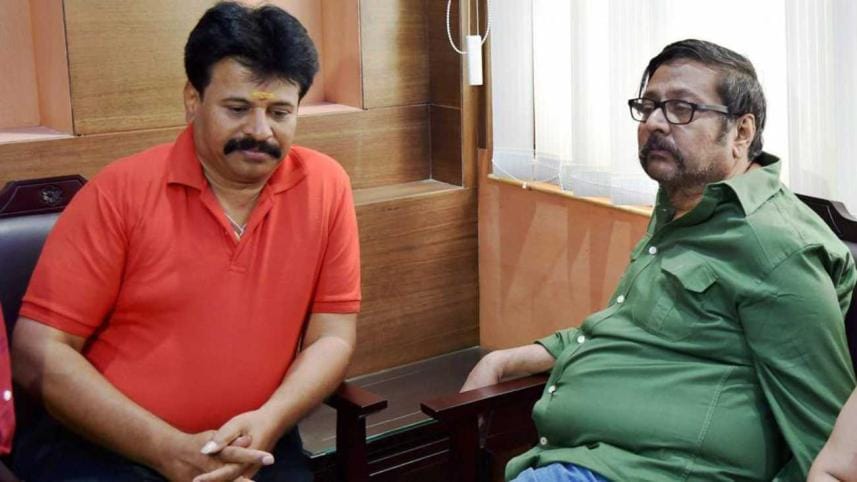Bearing the burden of undefined privileges

The sentencing of two editors to one-year jail terms in the southern Indian state of Karnataka for alleged breach of legislative privilege draws into focus the role of the press in reporting activities of lawmakers. While the arrests, ordered by the Speaker of the legislative assembly, have been stayed on a suggestion by the High Court, the issue of legislative privilege remains alive because what the assembly in Karnataka did last month mirrors actions taken in the past and could well be emulated by other legislative bodies, including India's parliament.
The genesis of the matter lies in the country's Westminster-style Constitution. When adopted in 1950, it said that the privileges of legislators would, until they were defined by parliament, be the same as those enjoyed by members of the British House of Commons on that date. This is an unexceptional provision because many Commonwealth countries have used the privileges of the Commons as a template.
In 1978, the Constitution was amended to read: "In other respects, the powers, privileges and immunities of each House of Parliament…shall be such as may from time to time be defined by Parliament by law and until so defined shall be those of that House and of its members and committee immediately before coming into force of Section 15 of the Constitution (44th Amendment) Act, 1978."
This was a disingenuous ploy to remove the reference to the House of Commons without in any way changing the import of the constitutional provision but one that ensured a person not possessing a pre-1978 copy of the Constitution would be utterly clueless about the privileges that legislators enjoy. While ignorance of a law is no defence, obfuscation on such a massive scale might well overturn even that settled proposition.
The intent of those who framed the Constitution was clear. Borrowing the privileges of British MPs was a temporary measure, and there was a clear injunction to India's parliamentarians to define and codify their privileges. Sixty-seven years later, the privileges remain undefined and therefore both ambiguous and open to subjective interpretation.
Without going into the merits of the Karnataka case, it is necessary to state that the two journalists were found guilty of articles deemed defamatory by three legislators, including the Speaker. Various media bodies have deplored the punishment saying that when remedies for defamation were available, the privileges' route ought not to have been taken.
But the greater cavil that the media and rights practitioners have is that legislators have stubbornly refused to codify their privileges. These critics argue that many other Commonwealth jurisdictions have already done so and in a manner that restricts the scope of parliamentary privilege rather than expand it at will, as they allege is the case in India.
Privileges of legislators are meant to insulate them from criticism and action for what they say and do inside the legislature. The privileges of the House of Commons were first claimed when it was struggling to establish a distinct role for itself within parliament. As noted by the British constitutional theorist Erskine May, these privileges were necessary to protect the House of Commons and its members, not from the people, but from the power and interference of the King and the House of Lords.
Indeed, a Joint Committee on Parliamentary Privilege of the UK parliament recommended in 1998-99 that "Parliament's jurisdiction over contempt committed by non-members should be transferred to the courts."
Australia invoked Section 49 of its Constitution and codified its privileges in the Parliamentary Privileges Act, 1987. It abolished (Section 6) the offence of contempt by defamation outside the House.
Several bodies in India have stressed the need to codify parliamentary and legislative privileges. The National Commission to Review the Constitution said in 2003: "The only idea behind parliamentary privilege is that members who represent the people are not in any way obstructed in the discharge of their parliamentary duties and are able to express their views freely and fearlessly inside the Houses and Committees of Parliament without incurring any legal action on that account. Privileges of members are intended to facilitate them in doing their work to advance the interests of the people. They are not meant to be privileges against the people or against the freedom of the press. The Commission recommends that the time has come to define and delimit privileges deemed to be necessary for the free and independent functioning of Parliament."
The Second Press Commission, the Press Council of India, the Indian Newspaper Society and the Editors' Guild of India have at various times sought codification of privileges. But to no avail.
In a 2014 history of the Indian Newspaper Society titled Threescore and Fifteen, I had written: "The position of our Parliament has been consistent in two aspects – (i) It shall not codify its privileges and (ii) if the press wishes to know when and where it might be in breach, it ought to study all past rulings of the Committee of Privileges on the basis that if Britain can survive with an unwritten Constitution we ought to be able to survive with un-codified privileges. The flaw in this reasoning ought to be immediately apparent—we do have a written Constitution, one that had actually asked parliamentarians to codify privileges.
"Because the same position obtains in state legislatures, the undefined threat of a breach of privilege constantly hangs over the head of the publisher, and by the nature of its presence acts as a muzzle on the free press. This situation calls for immediate remedy."
No remedy is in sight nor will one be for as long as India's legislators refuse to accept the weight of opinion that enjoins them to define their privileges. The irony is that in doing so, they appear to ignore even the Constitution they are sworn to uphold. Journalists, it seems, must reconcile themselves to this legislative peril.
Ravindra Kumar is Editor, The Statesman.
This is a series of columns on global affairs written by top editors and columnists from members of the Asia News Network and published in newspapers and websites across the region.




Comments